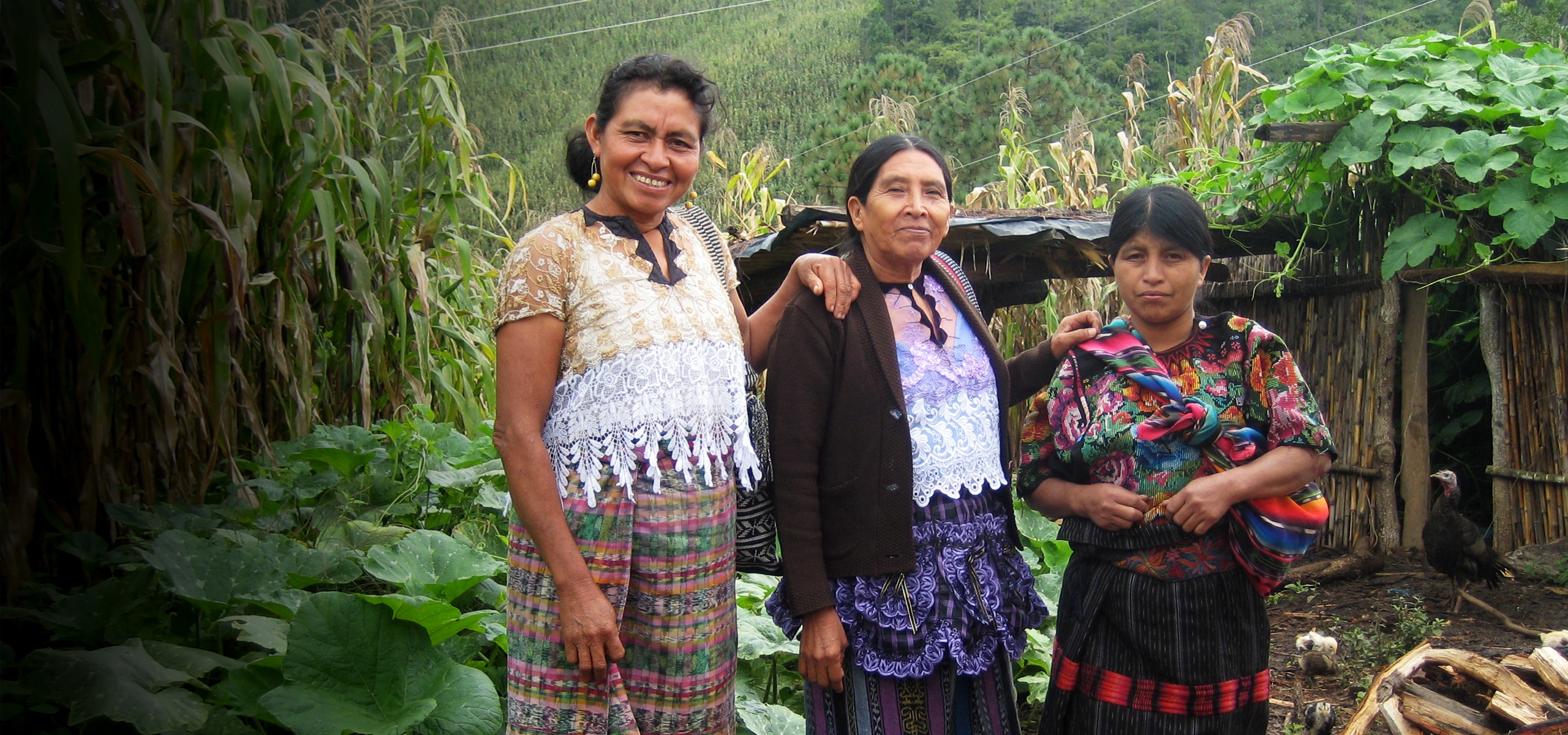Why ESPERA
Through the ESPERA program, Mary’s Pence works with marginalized women in Mexico, Guatemala, Honduras, Nicaragua, and El Salvador. ESPERA meets the concrete and immediate need for financial resources, provides long-term support for women through coaching on business and leadership skills, and works to strengthen our grassroots partners.
Currently we are partnering with 14 organizations managing ESPERA community lending pools. Our partners range in size from 20 to 300 members. Most are located in rural communities, though a couple are in large cities. All are working locally for justice for women.
All money provided to our grassroots partners is a grant. The lending pool is owned and managed by our partner organizations, with the help of Mary’s Pence ESPERA staff. The money never returns to Mary’s Pence. Instead, the ESPERA community lending pool remains in the community as a sustainable and growing resource.
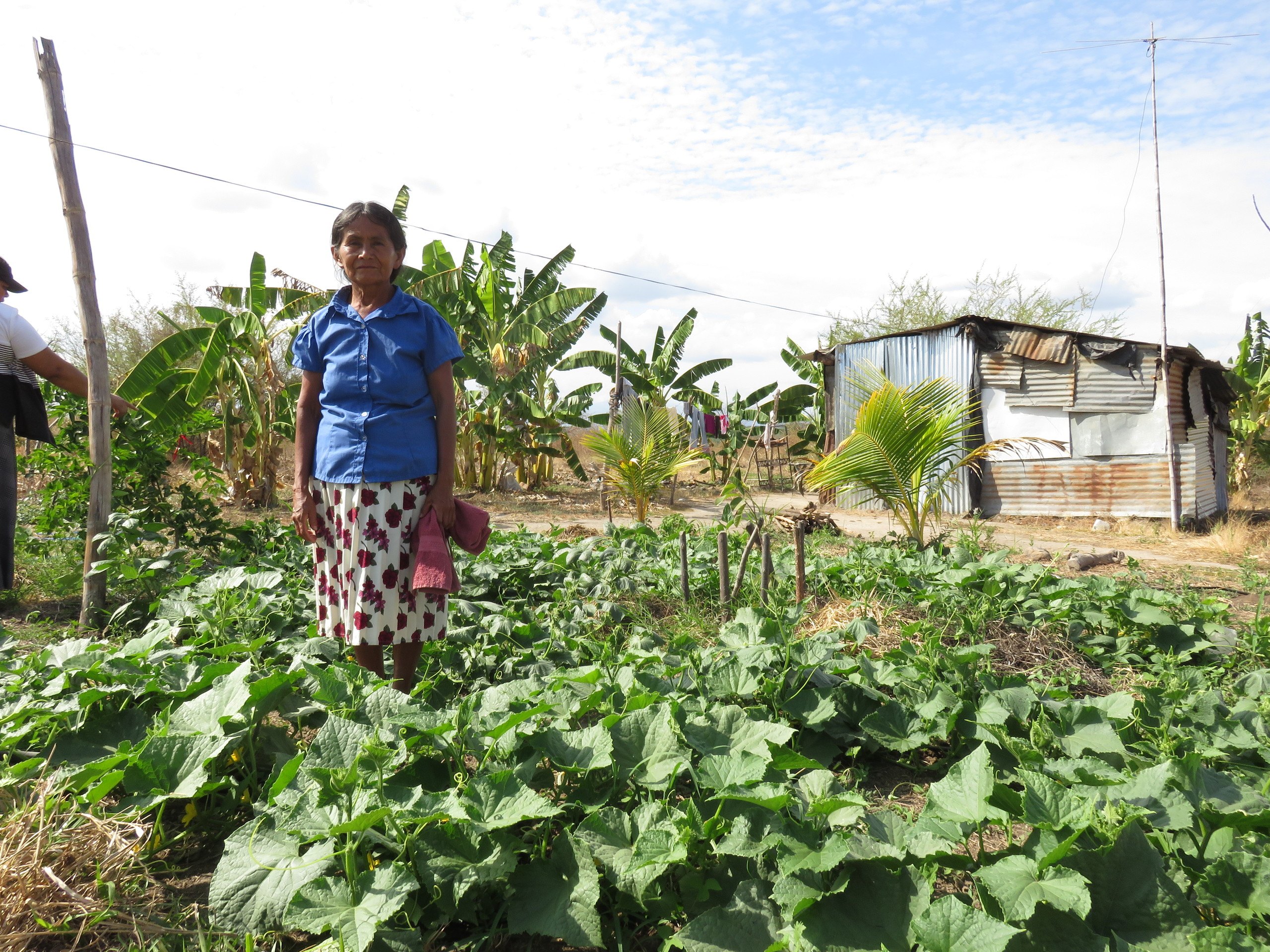
Meeting Women's Needs
ESPERA women are survivors of war and many face violence from gangs and domestic abuse. The women do not have access to traditional means of making money. They live primarily in rural areas and many have only an elementary education; some are illiterate. In El Salvador especially, migration is changing social and family structures, leaving many women to raise families alone. For rural women, the lack of infrastructure and basic services like transportation affects health and business alike.
How ESPERA Works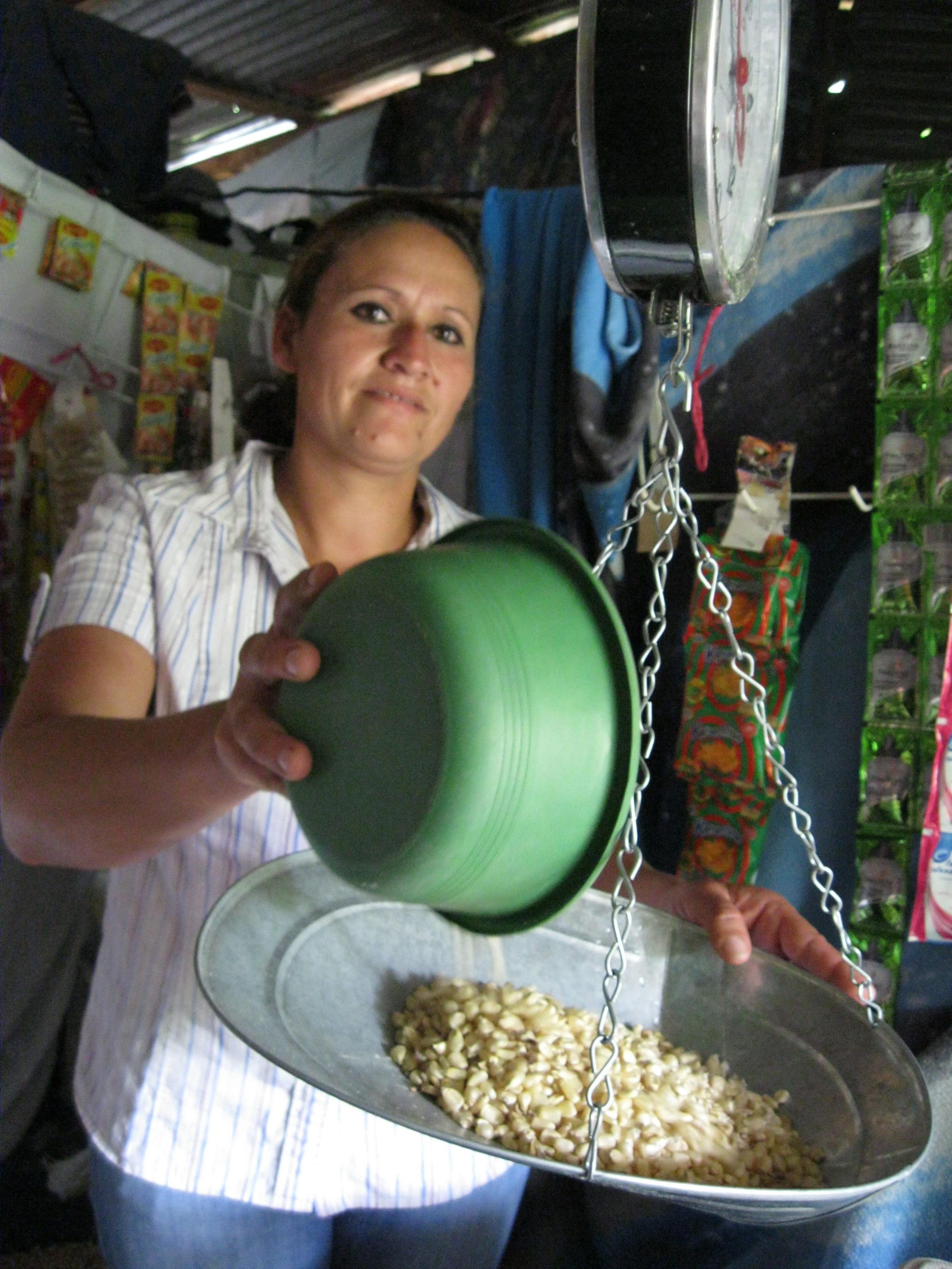
How ESPERA Works
Supporting Women with Financial Resources
- Mary’s Pence partners with grassroots women’s organizations to create community lending pools.
- Mary’s Pence provides the initial funds for the pool.
- Local Mary’s Pence staff support the women through collective decision-making and management of the lending process, which includes determining loan criteria, amounts, and repayment periods, and electing leaders who execute and track the lending.
- The women use loans from the pool to start both collective and individual income-generating businesses like small shops, food and agricultural production, or making artisan crafts.
Accompanying Women and Our Grassroots Partners
- Local Mary’s Pence staff continue to accompany the women through regular meetings with small groups and individuals. These meetings build trust and community between the staff and the participants and provide opportunities for the women to participate in coaching on business skills and leadership development.
- Mary’s Pence also regularly provides Capacity Building grants to help strengthen our partners in additional ways including facilitation of meetings, strategic planning and budgeting, hiring additional staff and other overhead costs.
Increasing Women’s Economic Security
- With the money earned, the women pay back their loan with interest to the pool. The interest rate as well as the use of the interest are determined by the group before lending begins. Most often interest is used to help pay a member of the group to help manage the funds, or to increase the size or number of loans.
- The money returns to the community-owned lending pool, it never returns to Mary’s Pence. This way, we are able to help create a lasting community resource, not a debt trap.
- Three of the ESPERA groups have begun savings programs as another step toward sustainability.
- Occasional assemblies are held for the participants from multiple partner organizations. These gatherings strengthen the ESPERA network and all the individual participants because it enables them to share success stories, learn from one another, brainstorm solutions to common problems, and connect across the broader network.
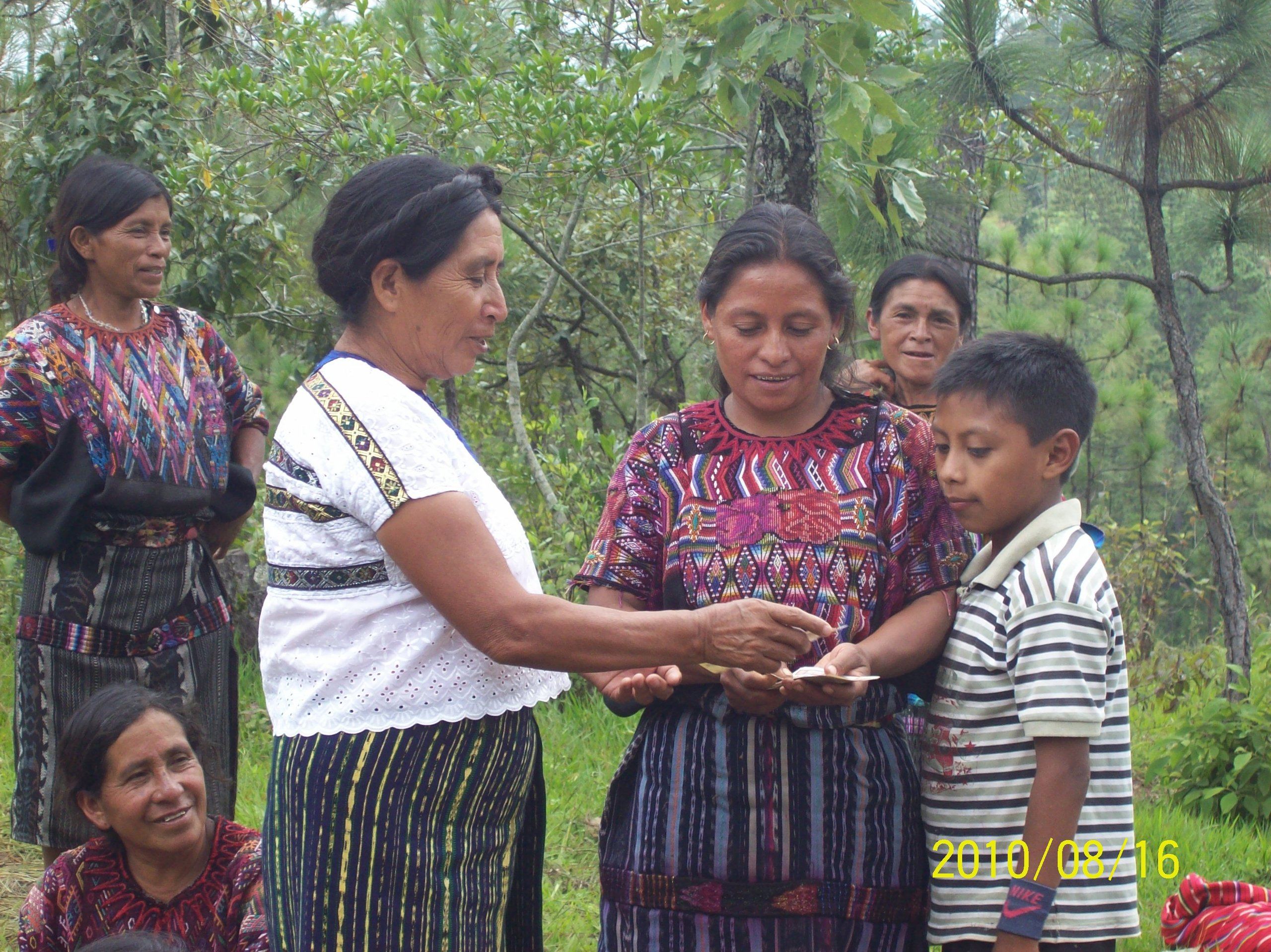
Economic Security
ESPERA gives many of the participants the opportunity to make enough to live with dignity. Increasingly, women are reporting that because they are contributing to the family income, they are able to have a voice in making financial decisions with their husbands. This means that their children are going to school longer, they are eating more nutritious meals, and they are able to improve their family’s living conditions and care for their family’s health. Increased income from a business started with an ESPERA loan can also mean that in emergencies, there is enough to cover unexpected expenses. And women have reported that because of the opportunities available with the ESPERA loan, they will not have to immigrate to the United States for economic reasons, as has been the case for some others in their communities.
Women participating in the lending process often start with very small loans of $100 or $200 to be paid back over the course of a year. As they see the impact an investment can make on their businesses, and as their confidence grows, they begin taking bigger loans. Larger investments coupled with business coaching and skill-building ultimately leads to increased profitability in their businesses.
Accompaniment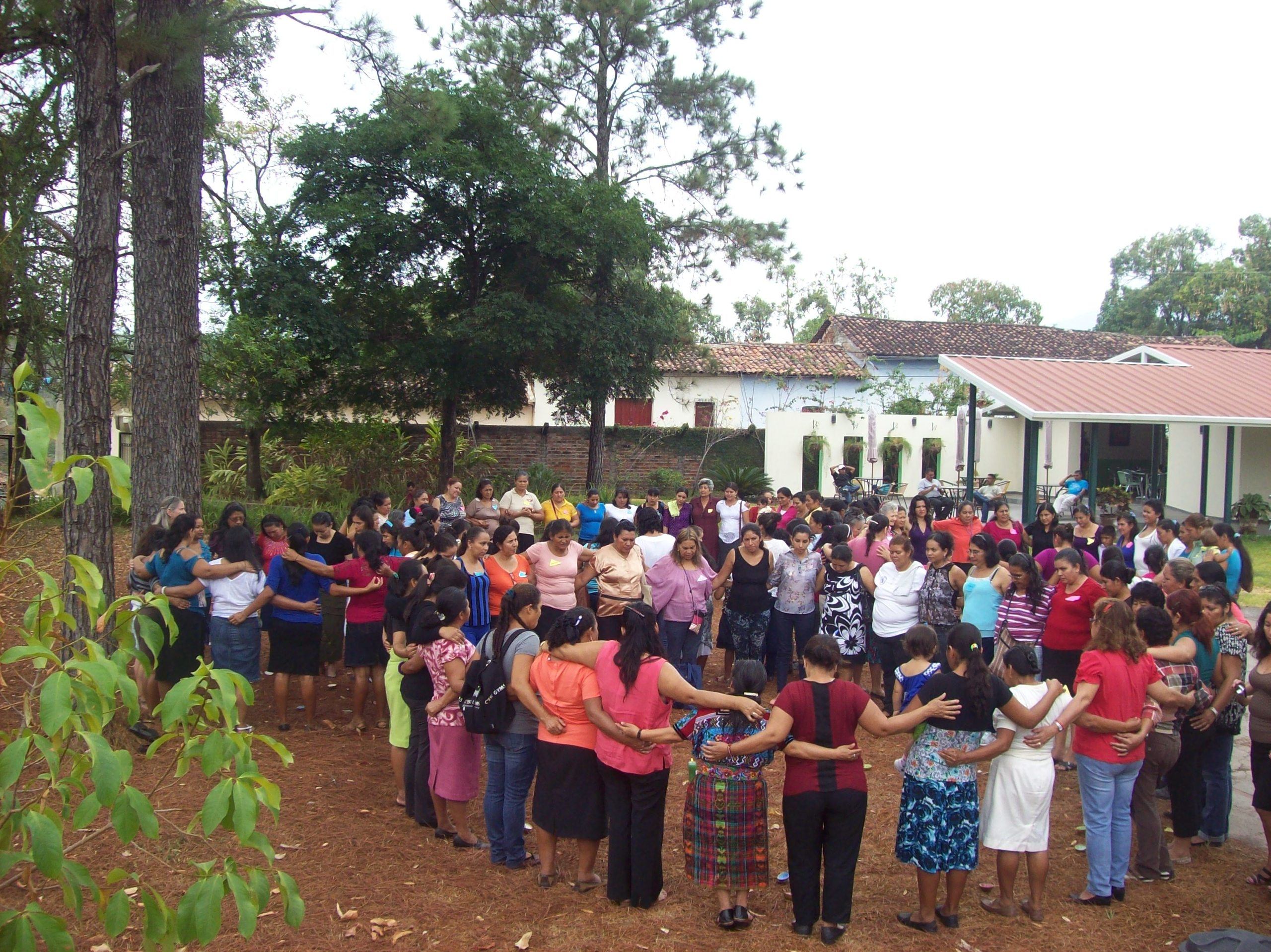
Accompaniment
The local Mary’s Pence staff who accompany the ESPERA women consists of two women who are from Mexico and El Salvador. They travel regularly to each of the groups to check in and to provide personal and professional support and coaching on a variety of skills. The ESPERA staff are flexible in their approach by necessity, adapting to the various and unique cultures, businesses, personalities, challenges and strengths of each woman. Every woman with an ESPERA loan is visited at minimum once a year.
Improving Women’s Businesses
ESPERA participants are coached on the following business topics as they relate to their specific businesses and contexts.
- customer service
- understanding needs of a community
- market analysis
- how to make a business plan, and help with follow-through
- re-investing profits into the business
- diversifying the business
- accounting and budgeting
Encouraging Women’s Participation and Relationships
Community is integral to the success of ESPERA. Mary’s Pence supports workshops on the following topics.
- Leadership
- Group communication
- Setting personal goals
- Relationships of cooperation not competition
- Mental health
Increasing ESPERA Partners’ Capacity
Mary’s Pence provides additional grants to our grassroots partner organizations to increase their capacity. Here are some examples.
- Board/leadership training
- Stipend for a coordinator
- Accountant for the organization
- Transitions
- Strategic planning
- Operations – hiring additional staff etc.
- Facilitation of difficult or complicated group discussions
- Self sufficiency
- Attaining legal status
Enhancing the ESPERA Network
Mary’s Pence intentionally connects leaders and participants from different partners through visits and gathering. Through these interactions they learn from one another’s successes, brainstorm solutions to challenges, share their expertise, collaborate, and encourage one another.
Changing Women's Lives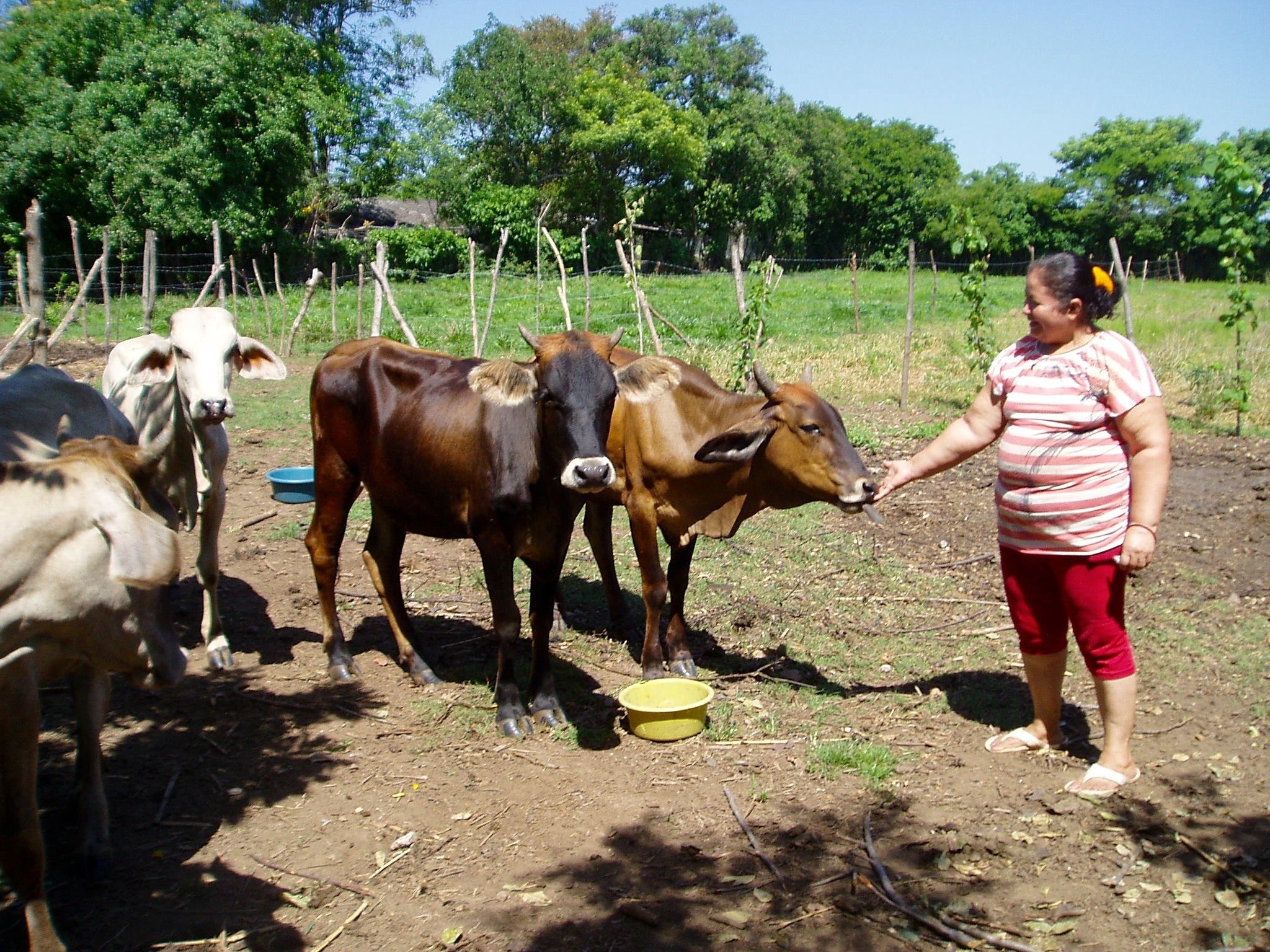
Changing Women's Lives
We know that the ESPERA model is effective in increasing women’s economic autonomy and empowerment. Here are some indicators of our success.
- Women’s level of income and profits are increasing.
- Loans are being used effectively and re-payed on time with interest so that more women can participate. Across the ESPERA network there is only a 3% default rate.
- Leaders are chosen by the group and they encourage and welcome group participation.
- There is a high level of participation in group activities and workshops and participants are empowered to voice their opinions and feel that they are heard.
- There has been a gradual increase in the creation of collective businesses, which indicates cooperation and solidarity.
- The women are using learned skills in their personal lives and in their broader communities.

